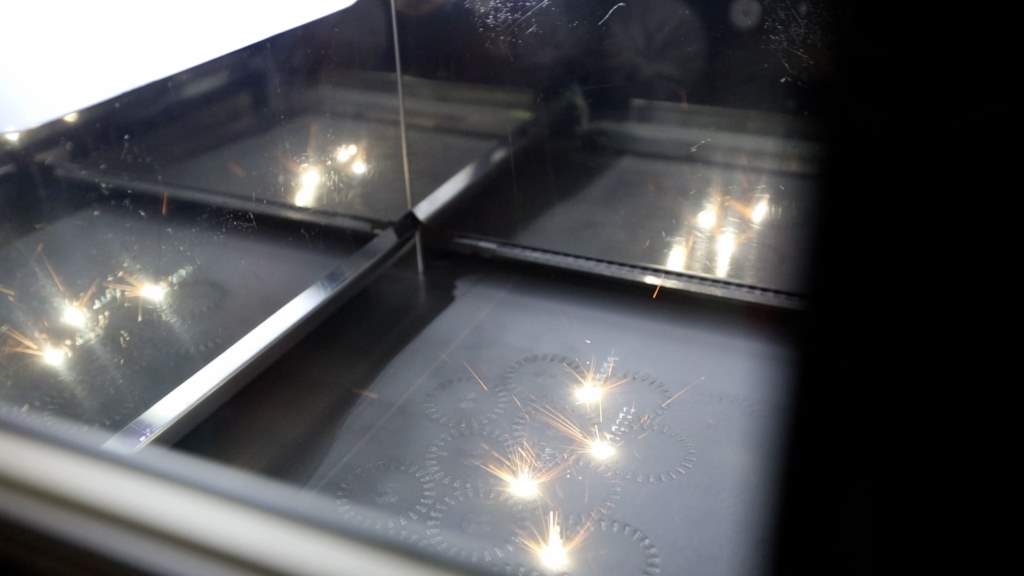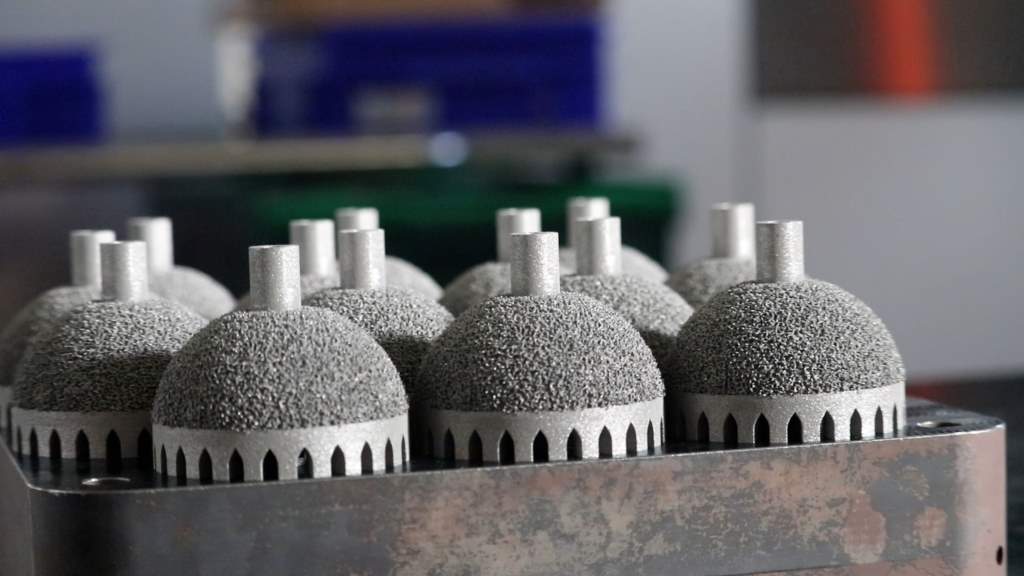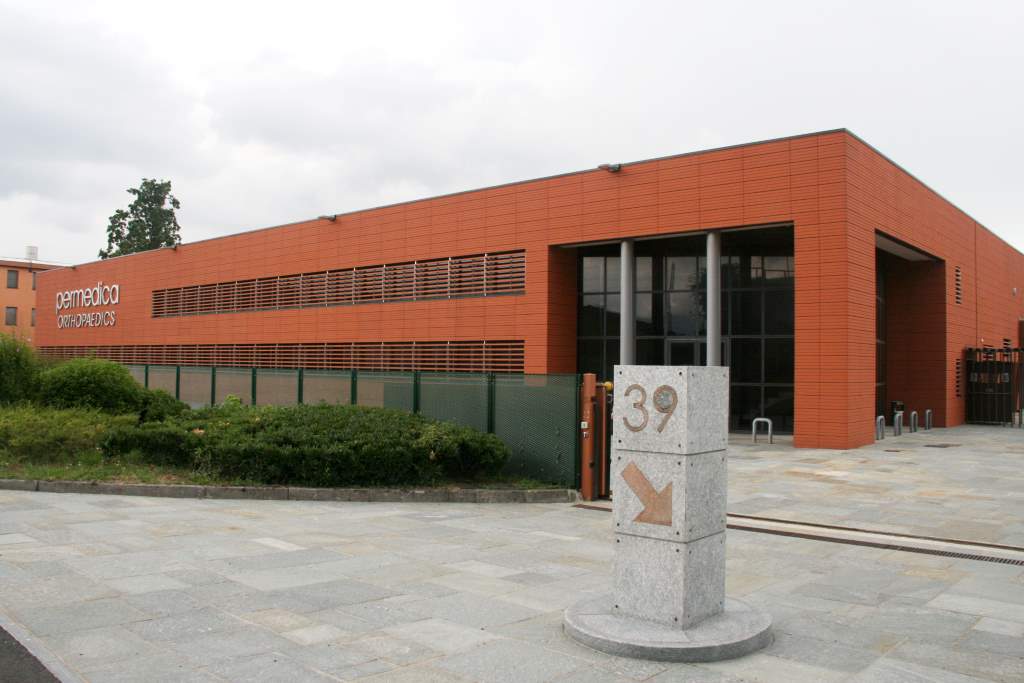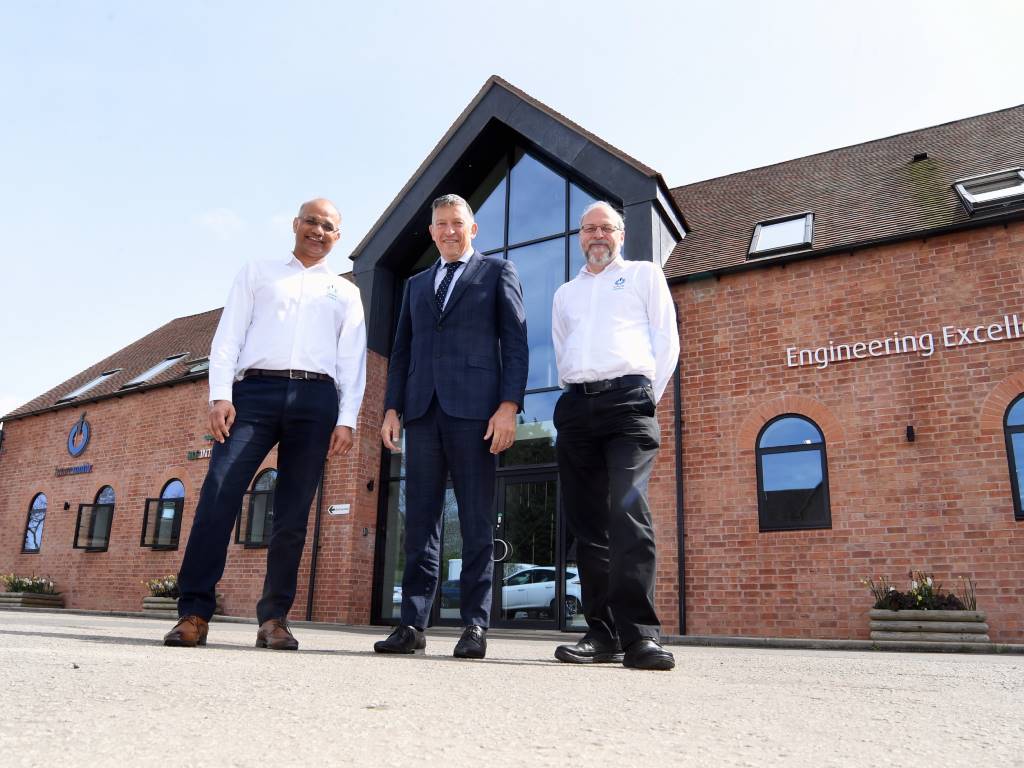Mass AM production for medical components

The medical industry has used additive manufacturing (AM) to develop low volume parts, such as medical prototypes, bespoke implants, and surgical implants and aids for many years. Now global engineering technologies company, Renishaw, has collaborated with medical devices specialist, Permedica, to develop AM processes for the mass production of medical components in the healthcare industry, driving industry innovation. PES hears more.
Permedica was founded in Lecco, Italy in 1986 by Marco Perego and started as a distributor in the medical sector, focusing on developing and selling orthopaedic implants for hip, knee and shoulder arthroplasty. The company occupies one of the largest and most modern production facilities in Europe, dedicated to promoting continuous growth and innovation in the orthopaedic sector.
One of the driving forces behind the company’s success is its people, both in design and production, because quality is at the heart of everything it does. Talented engineers and technicians enable Permedica to rapidly respond to market changes and requirements in orthopaedics and dental industries. Furthermore, the company’s commitment to the research, development and manufacturing of cutting-edge joint replacement products facilitates its continuous expansion.
Promising partnership
“We established a partnership with Renishaw early on in the company’s development,” comments Federico Perego, sales manager at Permedica. “One of the strengths of our company is the ability to seek out and recognise potential partners who can be effective companions, providers of solutions and bearers of innovation. We feel that it is essential for us to have rock-solid, healthy relationships with whoever we choose to engage with as partners. Only through mutual trust, respect and strong collaboration can significant goals be achieved.”

Renishaw has provided Permedica with touch probes for CMMs and machine tools, as well as laser systems for part measurement and tool setting operations for many years. It therefore plays a crucial role in the Permedica production chain, with every single part produced by the company undergoing dimensional checks. The technicians appreciate the ease of use of Renishaw systems and like how they can be applied to most brands of machines.
In recent years, Permedica began using AM alongside traditional production methods. This approach allowed the company to condense the production line while opening up the possibility of creating bespoke products for individual patients.
“Product customisation is, for all intents and purposes, still a small niche of the market,” continues Mr Perego. “However, it has two great advantages: the first is that it broadens our capability, and the second is that it is probable there will be a strong push towards it from an engineering perspective because it is where the market is heading. So, being at the cutting edge of it is crucial.”
Boosting output
Permedica had previously used two non-Renishaw 3D printing machines. Both machines were only equipped with a single laser and therefore only capable of offering limited performance. Based on the company’s desire to develop the area of additive manufacturing, it decided to search for a new machine that performed better and improved productivity.

“When searching for a new AM machine, we found ourselves looking closely at the Renishaw RenAM 500Q and it immediately struck us as a very interesting solution,” explains Mr Perego. “This was down to several reasons – first and foremost the production area, which has four impressive sintering lasers. This feature allows us to achieve a remarkably higher level of production and a reduced cycle time per unit as compared with the single laser machines we already had in our workshop.
“The RenAM 500Q is a fully automatic machine, including powder sieving operations, meaning that there is no need for operators to oversee this step, saving a great deal of time. Due to our existing relationship with, and knowledge of, Renishaw, we knew that this was the product to go for.”
By speeding up the process by up to four times, the RenAM 500Q broadens the market appeal of metal additive manufacturing into applications that were previously uneconomic, driving the technology into new industries.
The RenAM 500Q is designed to scale up AM technology to suit larger production volumes, enabling Permedica to use the system for mass production of standard parts instead of custom applications. Its working volume (250 x 250 x 350mm) and four lasers enables the company to meet demanding production volumes and speeds. The system also features automated powder and waste handling systems that enable consistent process quality, reduce operator intervention time, and ensure high standards of system safety.
Added productivity
By installing the RenAM 500Q, Permedica experienced increased throughput and found that the mechanical properties of parts manufactured on the machine were superior. This enabled the company to extend the production of other parts using AM. Permedica purchased two additional RenAM 500Q systems in 2022, allowing it to meet increased demand for mass produced medical components in the healthcare market.

“The presence of the four lasers effectively puts us in a position to operate with significant production volumes,” Mr Perego says. “This shows just how versatile the Renishaw machine is, making it the crown jewel in our production setup.”
Permedica noted that one of the biggest challenges when implementing a new technology is taking the time to install the equipment effectively, fine-tune the process and train staff.
“We have found Renishaw to be a solid, reliable partner capable of supporting us quickly and assisting us in the challenging task of increasing productivity, reducing lead-times and minimising waste,” Mr Pergo affirms. “In my eyes, these goals have certainly been achieved, not least thanks to the presence of a team dedicated entirely to additive manufacturing which has been with us every step of the way over these past four years of operation.
“It is also important to mention the quality and versatility of the Renishaw software that runs the RenAM 500Q. Operationally speaking, the part execution files are transferred from our CAD/CAM system to the machine for all the work of translating the files. I have to say that there have never been any sort of conflicts, inaccuracies or uncertainties, which is a sign that Renishaw has certainly put in a great deal of work in this regard too,” he concludes.
Renishaw
www.renishaw.com/am













